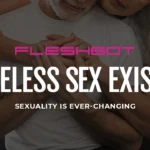A North Dakota Senate resolution (SCR 4017) that seeks to declare pornography a public health hazard has received a unanimous “Do-Pass” recommendation from the legislative committee. The measure, which mirrors similar resolutions passed in conservative-led states, frames pornography as a moral and public health crisis that negatively impacts individuals and society.
Supporters of the resolution, primarily members of religious organizations, argue that pornography:
- Promotes unrealistic body image expectations.
- Is linked to human trafficking.
- Has addictive qualities.
Mark Jorritsma, Executive Director of the North Dakota Family Alliance Legislative Action, emphasized the moral and social implications of pornography, stating:
“This resolution seeks to recognize that pornography is a serious public health and moral issue in our society and should be dealt with accordingly. We believe human sexuality was designed and intended for our good, within the bond of a committed, life-long marriage between a man and a woman.”
Notably, no one testified against the resolution during the committee hearing.
North Dakota joins a growing list of over a dozen states that have passed non-binding resolutions labeling pornography a public health crisis. Similar resolutions have been adopted in Utah, Arizona, Tennessee, Montana, Louisiana, and Texas, among others.
The Arizona Senate recently approved a resolution calling for a “systemic effort” to prevent youth exposure to online pornography, with Sen. Sylvia Allen (R) blaming porn for contributing to violence against women, teen sexual activity, and unintended pregnancies.
Exploitation, a conservative anti-pornography organization that argues pornography has become too ubiquitous for individuals to combat alone.
While the porn-as-public-health-crisis movement has gained traction among social conservatives, public health experts, civil rights advocates, and free speech organizations have raised serious concerns about the scientific legitimacy and potential policy implications of such declarations.
Emily Rothman, a professor of community health sciences at Boston University, cautioned against equating pornography with a deadly virus or drug epidemic, stating:
“If you stub your toe, that might be something you can’t solve yourself, but that doesn’t make it a public health issue.”
Other critics, such as Albuquerque-based sex therapist David Ley, have dismissed the resolutions as “virtue signaling”, arguing that pornography is a normal part of adult sexuality and that banning or restricting it would be a political move rather than a scientific necessity.
- Lack of Clear Public Health Criteria – Public health crises typically involve immediate, widespread threats such as infectious disease outbreaks, drug epidemics, or natural disasters. While some individuals experience compulsive porn use, research does not support framing all pornography as an urgent health threat.
- Inconclusive Links to Human Trafficking – While some criminal trafficking cases have involved adult content, broad claims that pornography fuels trafficking remain unproven. Many sex worker advocacy groups argue that conflating consensual adult content with criminal exploitation undermines efforts to combat actual trafficking.
- Potential Censorship Risks – Resolutions like North Dakota’s SCR 4017 could pave the way for restrictive laws that limit internet freedom, increase government surveillance, or censor sexual health and LGBTQ+ content under the guise of “protecting public health.”
What Happens Next?
Since SCR 4017 is a resolution rather than a bill, it does not create new laws or regulations but serves as a formal declaration of the state’s stance on pornography. However, similar resolutions have laid the groundwork for future legislation restricting porn access, such as:
- Banning pornography on publicly funded internet networks (schools, libraries).
- Mandating stronger age verification systems for adult websites.
- Allowing parents to sue adult content platforms if their children access porn.
Should North Dakota or other states move beyond symbolic resolutions to actual legal restrictions on pornography, First Amendment lawsuits are likely. David Boaz, Vice President of the libertarian-leaning Cato Institute, warns that designating pornography as a public health crisis could justify sweeping government crackdowns on speech:
“When you declare it as a public health crisis, people see that as a blank check for the government to do something about it.”
Meanwhile, Utah’s 2016 anti-porn resolution has already led to tighter regulations on public WiFi access, and some states have explored parental lawsuits against porn companies, though these efforts face uncertain legal futures.
The North Dakota resolution represents another step in the conservative movement’s effort to frame pornography as a societal crisis despite ongoing scientific debate about its actual impact.
While SCR 4017 itself does not impose restrictions, it sets the stage for potential legislative actions that could impact internet freedom, digital privacy, and free speech protections in North Dakota and beyond.










